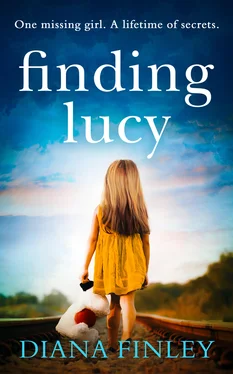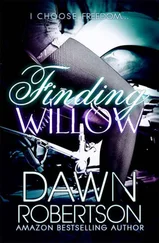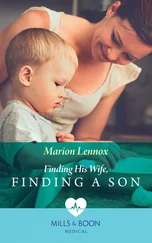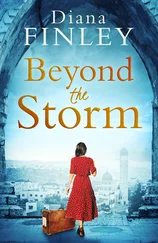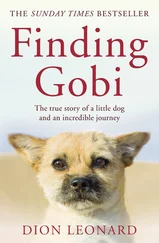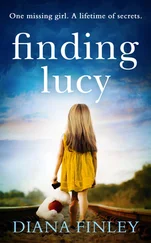As if to confirm that it was indeed the poor, run-down neighbourhood I wanted, two small boys, aged only about three or four – both dirty and inadequately dressed for the time of year – were playing unsupervised in the gutter at the end of a back lane strewn with rubbish. An overflowing dustbin provided the little urchins with playthings; they were rolling tin cans noisily over the cobbles.
I stopped and made a deliberate effort to smile at them. The children stared back at me impassively. Then the slightly larger boy stood up, and, looking both impish and defiant, he stuck his tongue out at me! I knew it was ridiculous to allow myself to feel intimidated by two such tiny children, barely out of babyhood – but nevertheless I did feel it, and so hurried on, fearing the boys might have started throwing stones or items of rubbish.
I explored the streets systematically, working my way southwards, wandering up one terrace, and then down the next – all the while trying to look as unobtrusive as possible. As I rounded a corner, I encountered another small boy – this one of maybe five or six years old – who almost bumped into me. He wore shorts much too long for him and a torn jersey. His hair was tousled and unwashed-looking.
‘’ello, missus,’ he said, standing sturdily in my path and grinning up at me.
‘Hello …’ I said, beginning to edge around him. He shifted sideways, as if to bar my way again.
‘Wanta see what’s in me box, missus?’ he said, thrusting a battered cardboard box up at me. I looked about uneasily.
‘Well … um … yes, all right.’
He carefully prised off the lid, to reveal a scrawny, greyish house mouse. It twitched its nose and regarded me with glittery black eyes. Horrified, I took a step back.
‘It’s me mouse,’ the boy informed me unnecessarily. ‘He’s me pet. I call ’im Billy. You got ten pee for Billy, missus? For ’is dinner, like?’
With trembling fingers I searched my purse for a coin. Finding two ten-pence pieces, I held them in the air in front of the boy.
‘Put the lid on the box,’ I urged him, dropping one ten-pence piece into his expectant palm. ‘That’s for your mouse’s food,’ I said, ‘and here’s ten pence for you to spend.’ The child smiled a gap-toothed smile.
‘Ta, missus.’
I hurried onwards.
I could have no doubts that this was a suitable area. Greyish, shabby-looking washing hung in many of the yards, and in places was draped right across the back lanes. A group of young men clustered around a motorbike outside a corner shop, talking and laughing loudly and crudely, in a way I could not help finding unsettling. Some were drinking what I assumed was beer from cans or bottles. One threw an empty can at an advertisement hoarding just behind me, causing such a sudden clang that I jumped with shock, which only made the youths laugh louder still.
I turned quickly down the next back lane. Here and there women smoked and chatted with one another in pairs or threes. The local dialect was so broad that I could scarcely make out a word of what was said, although their frequent use of profanities was clear enough. Some held babies on their hips, while toddlers swarmed around their legs. Bigger children chased each other about, screaming like savages.
At one street corner a bigger girl pushed two younger children in a large cardboard box, careless of broken glass strewn across the ground. The scene struck me as more reminiscent of the Twenties or Thirties than the Eighties. I made sure not to linger, anxious to remain inconspicuous. It was essential that no one should notice my presence too readily, or engage me in conversation.
Just as my resolve, in this hostile environment, was beginning to falter, I came to a row of houses that appeared to hold some promise. My attention was drawn by a woman’s voice shouting.
‘Will youse two ger’out from under me effin’ feet right now! Go on – ger’outside!’
I slowed my pace. A boy of about five yanked open a battered door hanging by one hinge, and ran out of the yard. He looked from left to right, and then ran leftwards until he was out of sight. I caught my breath, gasped, and stood still. For a moment I hadn’t noticed a second child emerge from the door. But yes, there she was: tiny, elfin; two or perhaps two and a half years old. She stood in the yard doorway looking about her, a finger in her mouth.
‘Wy-yan …?’ she called plaintively.
I guessed the child was calling her brother. Her fair hair was tangled and matted at the back, her face extraordinarily grubby. She wore a stained yellow dress and an equally grimy cardigan, which had once been white. In her hand she held a filthy, one-legged doll by what remained of its hair. I paused and watched her, scarcely breathing. The little girl put the doll on the pavement and squatted down, crooning softly to it. She picked up a paper wrapper from the gutter and smoothed it carefully across her knee. Then she laid it over the doll with great tenderness, muttering something like ‘Dere y’are. Dere y’are, Polly.’
I tiptoed towards the child, holding my breath, longing to linger, but knowing I could not. As I reached her, the child looked up and noticed me. She raised her little face to gaze up at me and give me a startlingly beautiful, radiant smile. I paused and smiled back for a moment, and then, reluctantly forcing myself to turn away, I walked on. My heart was pounding. I had found my Lucy.
I scarcely noticed the journey back to Nottingham. I even forgot to spread my clean handkerchief on the back of the seat behind my head. Somehow I made each connection and boarded the correct trains. Ticket collectors came and went. I must have presented the relevant ticket, though I had no memory of doing so.
One cheery conductor on the Leeds-to-Derby stretch said, ‘Penny for them, duck!’ as he punched my ticket – such a foolish expression. But he shrugged and quickly moved on, disappointed, I suppose, that I had failed to respond in the same spirit. He could have offered me a fortune for them, but I wouldn’t have shared them; my thoughts were all on Lucy. How could such a dreadful place, such a dreadful family, have produced a child of such beauty and perfection? My mind drifted unbidden to my own history.
Could I have been born into just such a slum? Certainly my “birth mother” must have lacked morals. “Unmarried mother”, the adoption agency had written in the sketchy notes Mother had shared with me, when she felt that, at fourteen or so, I was mature enough for such information. Mother had always been open about the adoption. From my earliest memories, I knew I’d been “chosen” and that somehow this made me special. Mother had emphasised that it was unnecessary to share this information about my roots with anyone else. It was just for the two of us. Well, Mother was my real mother in every true sense of the word, wasn’t she?
When thoughts of this “unmarried mother” occasionally surfaced, I shuddered at the image of a slovenly, unkempt woman – such as those I had seen today in abundance on the streets and back lanes of Frainham. I screwed up my eyes tightly and forced myself to concentrate on Mother, neat and decent, her morals intact, and felt I could breathe easily again. Thank goodness I had decided years ago never to attempt to make contact with my birth mother.
Читать дальше
